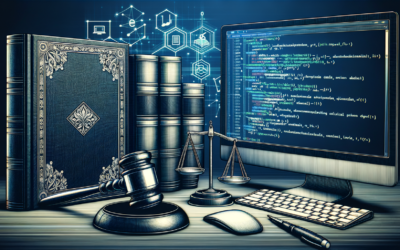Online Dispute Resolution Platform
In the digital age, dispute resolution is undergoing a radical transformation. The advent of Online Dispute Resolution (ODR) platforms is revolutionizing traditional methods, offering an adapted response to new needs for justice. In this article, we’ll explore in detail what an ODR platform is, how it works, its benefits, and its role in today’s legal landscape.
What is online dispute resolution?
Online dispute resolution is a process that uses Internet technology to resolve disputes in an efficient and accessible way. This concept encompasses various mechanisms such as mediation, conciliation, arbitration and negotiation, all adapted to operate in a virtual space. As a result, ODR platforms have become preferred instruments for handling a variety of disputes, between individuals or companies, while avoiding the constraints of conventional courts.
How do ODR platforms work?
Typically, an ODR platform offers a secure space where parties can submit their dispute. The interface guides users through the various stages of resolution, from initial deposit to final agreement, and in some cases even payment of compensation. Platforms often employ tools such as artificial intelligence to facilitate communication and decision-making, an aspect illustrated by systems such as artificial intelligence.
The advantages of ODR platforms
The advantages of ODR platforms are manifold: they reduce the costs and delays usually associated with dispute resolution. What’s more, they offer unprecedented flexibility, allowing parties to participate from anywhere in the world, provided they have an Internet connection. This opens the door to greater access to justice, which is perfectly in line with the principles of Governance, Risk and Compliance (GRC).
Modernized dispute management thanks to technology
Technological advances, particularly in the fields of blockchain and smart contracts, offer increased possibilities for the execution and monitoring of agreements arising from an ODR platform. For example, smart contracts can be used to automate compliance with the terms of an agreement without any external intervention. These advances help to make dispute resolution more transparent and secure.
ODR and international law
ODR’s role in international law is to facilitate the resolution of cross-border disputes. Companies operating on a global scale can thus benefit from standardized processes and reduce the legal complexities associated with the diversity of legal systems, a topic explored in depth through Robot Law and RegTech.
The future of online dispute resolution
Widespread adoption of ODR platforms is well underway, especially as demand for alternative resolution methods continues to grow. The ability of these platforms to evolve in line with technological advances augurs significant potential for simplifying and democratizing dispute resolution on a global scale. The integration of legal analytics goes hand in hand with this evolution, enabling advanced analysis of trends and precedents that can be used to optimize ODR processes.
Frequently asked questions
Here is a list of frequently asked questions about online dispute resolution platforms.
What types of disputes can be resolved via an ODR platform?
ODR platforms are particularly suited to consumer disputes, small and medium-sized commercial disputes, and certain types of family disputes. They offer a suitable solution for avoiding lengthy and costly legal proceedings.
Are decisions taken on an ODR platform legally binding?
Decisions rendered via an ODR platform may be binding if the parties undertake to do so via a prior agreement or by virtue of the applicable legislation. Legal recognition of ODR arbitral awards, for example, is governed by the New York Convention on the Recognition and Enforcement of Foreign Arbitral Awards.
How do you guarantee data security on an ODR platform?
ODR platforms generally implement advanced security protocols, including encryption and multi-factor authentication, to protect sensitive data. Compliance with standards such as the RGPD(RGPD compliance) is essential to guarantee the protection of user data.
It should be noted that the effectiveness of ODR platforms depends on the completeness and accuracy of the information provided by the parties, and on the quality of the communication established between them. The ODR is not just a technological tool; it’s a new form of justice that models itself on the realities of our times, reinforced by a touch of humanity and the promise of balanced access to dispute resolution for all.




